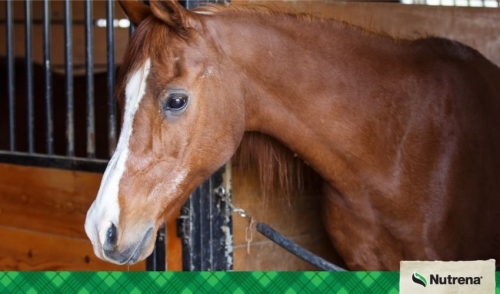
Does My Senior Horse Need Calories or Protein?
There are some common questions come up when we talk about what happens to horses as they age and why their bodies change shape:
- Does my good old horse need more calories (energy) or more protein?
- He is out on good pasture and is holding his weight, but his hair coat looks dull and he has lost muscle mass.
- She looks a little thin, should I add some fat/oil to her diet?
These are all apparently simple questions, but actually we need to look at the nutrient supply and purpose a little closer.
Calories from fat/oil, digestible fiber (structural carbohydrates and starch & sugar (non-structural carbohydrates) are the key energy sources for horses. If a horse is thin, that tells us that the horse needs more Calories to maintain fat cover measured by Body Condition Score system. Those Calories can be added from extra fat/oil, extra digestible fiber or additional starch and sugar. Vegetable oil contains 2.25 x the Calories per pound of carbohydrates and is a safe way to add Calories. Switching to a highly digestible fiber source (better quality forage, added beet pulp etc.) can also add Calories of digestible energy (DE). It takes 2-3+ pounds of added feed to add 1 pound of gain, depending on the feed.
Adding Calories alone will not bring back the muscle mass. This will require added protein (really added essential amino acids, particularly lysine, methionine and threonine, the first 3 limiting essential amino acids). If a horse is getting adequate crude protein, but the protein is of limited quality and is low in one or more essential amino acids, the horse will not be able to utilize it fully to maintain or restore muscle mass. This is why it is essential to know the quality of the protein in feeds, particularly these first 3 limiting amino acids.
A common situation is an old horse retired to a grass pasture. It may be difficult for the horse to consume enough to maintain body condition, thus the horse loses weight. The grass pasture may also be low in crude protein and certainly low in essential amino acids, so the horse also loses muscle mass. Tough combination for an old friend!
The good news is that this can be reversed with the use of a well-designed senior horse feed providing both Calories and essential amino acids!
The feed room is proudly brought to you by Nutrena and Cargill Animal Nutrition. Learn more about us here. You can see the original blog post here.
